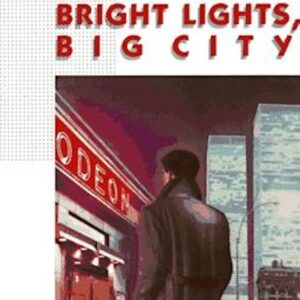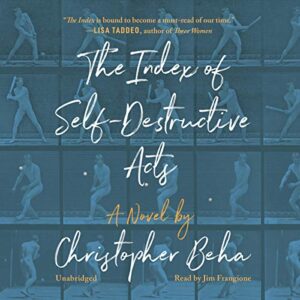According to that decadent weekend browsing pleasure Realtor.com (don’t try to pretend you don’t know what I am talking about), the average sale price of a single-family-home in Washington, DC, is $655,000. That’s a real steal compared with $1.3 million for San Francisco, of course. But the average price is some $456,000 even in La Plata, Maryland, a further-out suburb not too far from mine that is the kind of place that supplies cops, teachers, and nurses for the whole metropolitan area.
That’s still an impossibility, of course, for those earning the District of Columbia minimum wage of $16.10—and it’s one reason why, if I were running things, I’d take over one of those old convents declining in population and turn it into communal workforce housing for single women and mothers.
I’m bringing this whole state of affairs up because it’s roughly analogous to the way that publishing works these days. There’s the winner-take-all phenomenon whereby politicians and celebrities snort up giant advances like ever so much cocaine on the tabletop.
For example, The Girl With the Lower Back Tattoo by comedian Amy Schumer—a book that until today I did not even know existed—got an advance of $9 freaking million dollars back in 2016.
The obverse of this, of course, is the measureless avalanche of “content”—we’re beyond writing now—that gets created for free and sprayed into the void, where it may or may not garner any audience traction. I heard on the radio that 500 hours of content gets uploaded to YouTube every minute.
“Content,” of course, is not necessarily literature. THAT world of the four major U.S. commercial publishers and the network of MFA programs and university presses staggers forward, and I hope it keeps on doing so, and if that means we have to give $9 million dollars to Amy Schumer, I can live with that. (Sort of.)
Ever more, though, there’s the problem of a “missing middle” where—like the firefighters unable to find affordable housing in the metropolia where they work—writers struggle to get published, find an audience, and get paid, let alone have the longevity to let a creative vision root and grow and be pruned and strengthened by contrapuntal conversation with an audience.
At the same time, I am not especially grieved that the old midcentury, middlebrow-to-highbrow literary world is evanescent. It is not helpful to think in terms of markets and scarcities, along with the panic and declinism they induce. A wise former boss of mine—a German migrant to the United States who worked in the library at UCLA in the mid Sixties and used to console a downcast young Jim Morrison—used to complain about those who thought about money as a pie that could only be sliced until it was gone. Instead, she said, we should think about money like yeast in dough, where only a little bit might inspire so much, much more.
With respect to literature, thinking in terms of yeast and dough means a cooperative formation and sustenance of literary community. Rather than winner-take-all, our efforts can be founded on shared community. That’s not entirely new, of course—I’m an editor of the nonprofit Vita Poetica journal in the DC area, for example. Slant Books is at the exciting yet also scary moment of developing a sustainable operation to foster the complex, nuanced literature that would get passed on by a commercial publisher. These two—and so many other—ventures can use your support, so please think about supporting this community with your mite as you look toward the end of the year.
But they also need your voices, your essay submissions, and most of all, your actual reading. Vote with your money but also with your attention.
A few years ago, at the Calvin College Festival of Faith and Writing, I was part of a panel discussion on the subject of “How to Be a Literary Citizen.” The four women panelists—and all of us were women—had lives that were full of families and volunteering and faith, in which the writing we do was ultimately part of a larger vocational whole. But here we spoke of how to support and extend each other’s work, while proffering our own. And the reactions and dissemination that each of us received as a result helped carry our vision out into the world into an echoing conversation.
That’s the model, I think, whether we are persons of faith or not. (And if we are not persons of faith, then literature and the imagination become all the more important.)
The near-total fracturing of literary culture into endless prisms can often seem like nothing more than just a shattering.
Still, though, those slivers can catch the light, and reverberate far beyond. And you are a part of it. Join the conversation.
Caroline Langston was a regular contributor to Image’s Good Letters blog, and is writing a memoir about the U.S. cultural divide. She has contributed to Sojourners’ God’s Politics blog, and aired several commentaries on NPR’s All Things Considered, in addition to writing book reviews for Image, Books and Culture, and other outlets. She is a native of Yazoo City, Mississippi, and a convert to the Eastern Orthodox Church. She lives outside Washington, D.C., with her husband and two children.





